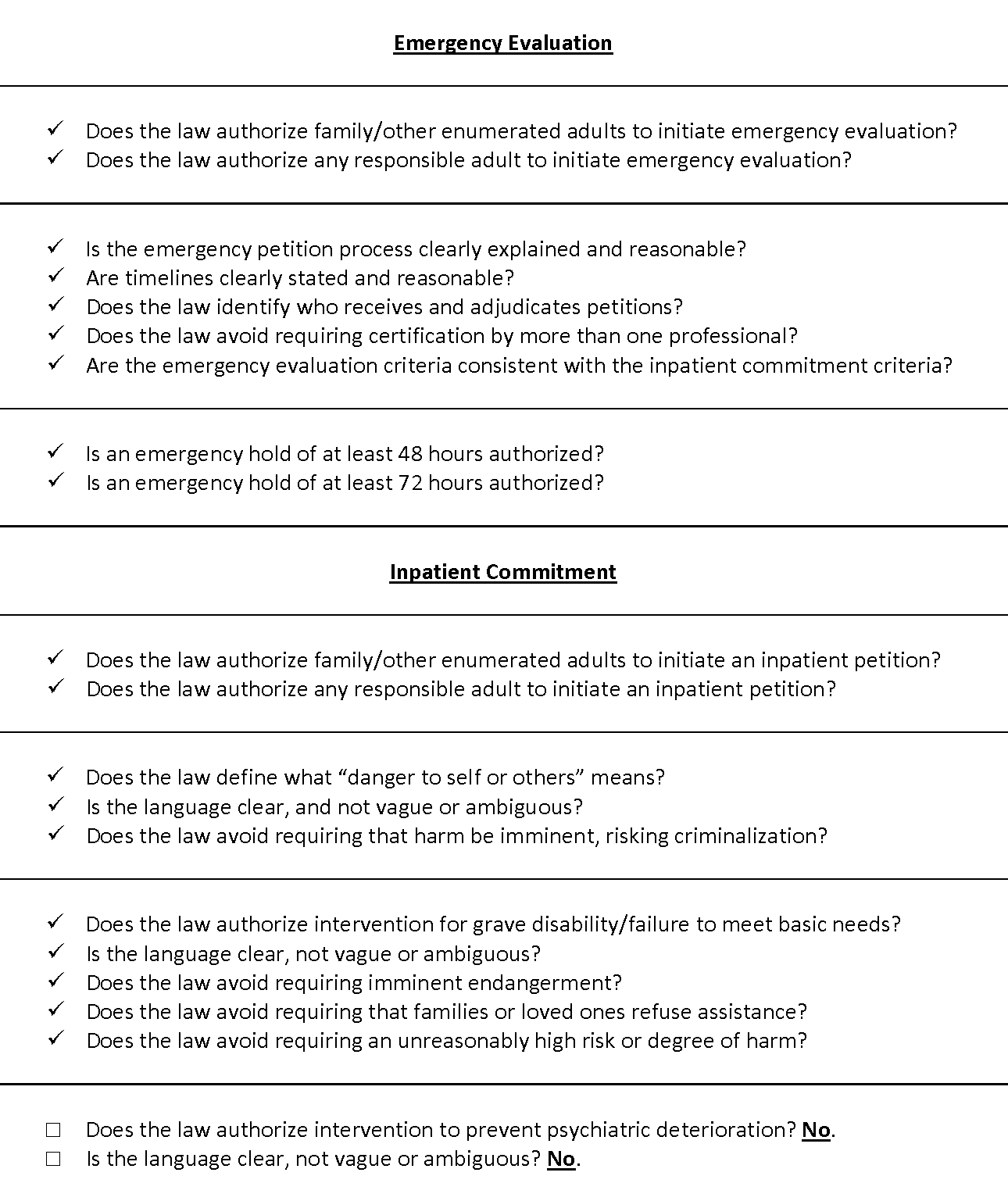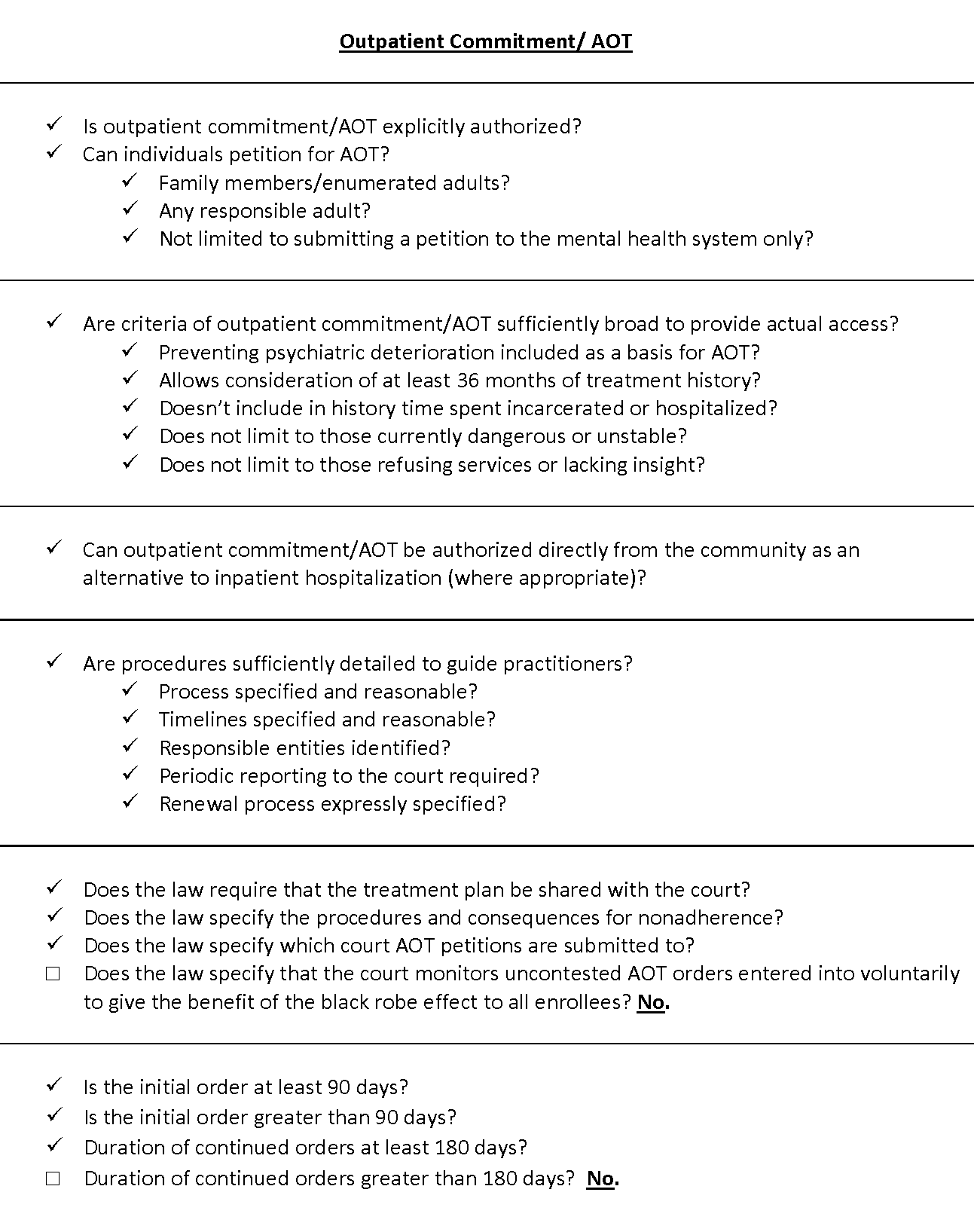Family Resources in Resources in Virginia
- Virginia Department of Behavioral Health and Developmental Services (dbhds.virginia.gov) Resources and contacts
- Commonwealth of Virginia 211 (211virginia.org) Call, chat, email, text, search for resources
- Mental Health America of Virginia (mhav.org) Resources and advocacy
- Virginia law on Mandatory Outpatient Treatment (law.lis.virginia.gov) Information about involuntary outpatient treatment
- NAMI Virginia (namivirginia.org) Support groups, training, information
- Disability Law Center of Virginia (dlcv.org) Protection and advocacy for individuals with disabilities
- Virginia Department of Housing and Community Development Homelessness/Housing Crisis Resources (dhcd.virginia.gov) Service directories by location
- Virginia Department of Corrections Offender Locator (vadoc.virginia.gov) Search for a person in prison and seek information about communicating with an inmate
- Virginia State Bar Association (vsb.org) Legal assistance
How many people in Virginia have SMI?
individuals with severe mental illness.
individuals with SMI who receive treatment in a given year.
of the adult population is estimated living with a SMI in the United States.
State psychiatric hospital beds in Virginia
2023 total beds: 1,241
- Civil beds: 401
- Forensic beds: 840
2023 beds per 100,000 people: 14.3
Click here for more information about state psychiatric hospital beds in Virginia.
A minimum of 50 beds per 100,000 people is considered necessary to provide minimally adequate treatment for individuals with severe mental illness. Virginia fails to meet this minimum standard.
For Additional Information
Data is a powerful tool to advocate for change. Curious about a specific data point in your state? Reach out to us at ORPA@treatmentadvocacycenter.org
Fast Facts on SMI in Virginia
Deinstitutionalization, outdated treatment laws, discriminatory Medicaid funding practices, and the prolonged failure by states to fund their mental health systems drive those in need of care into the criminal justice and corrections systems.
20%
11,782
1,240
10 to 1
2021 Virginia State Mental Health Agency's expenditures
Every state receives block grant funding from the federal government to provide mental health services to their community. Below is some information about how these dollars are spent and compares to other state spending.
$1,068,138,045
40%
$8,437
1.4%
Virginia's Treatment Laws
VA CODE ANN. § 37.2-808(A). Any magistrate shall issue, upon the sworn petition of any responsible person, treating physician, or upon his own motion, or a court may issue pursuant to § 19.2-271.6, an emergency custody order when he has probable cause to believe that any person (i) has a mental illness and that there exists a substantial likelihood that, as a result of mental illness, the person will, in the near future, (a) cause serious physical harm to himself or others as evidenced by recent behavior causing, attempting, or threatening harm and other relevant information, if any, or (b) suffer serious harm due to his lack of capacity to protect himself from harm or to provide for his basic human needs, (ii) is in need of hospitalization or treatment, and (iii) is unwilling to volunteer or incapable of volunteering for hospitalization or treatment. Any emergency custody order entered pursuant to this section shall provide for the disclosure of medical records pursuant to § 37.2-804.2. This subsection shall not preclude any other disclosures as required or permitted by law. When considering whether there is probable cause to issue an emergency custody order, the magistrate may, in addition to the petition, or the court may pursuant to § 19.2-271.6, consider (1) the recommendations of any treating or examining physician or psychologist licensed in Virginia, if available, (2) any past actions of the person, (3) any past mental health treatment of the person, (4) any relevant hearsay evidence, (5) any medical records available, (6) any affidavits submitted, if the witness is unavailable and it so states in the affidavit, and (7) any other information available that the magistrate or the court considers relevant to the determination of whether probable cause exists to issue an emergency custody order. VA CODE ANN. § 37.2-809(B). A magistrate shall issue, upon the sworn petition of any responsible person, treating physician, or upon his own motion and only after an evaluation conducted in-person or by means of a two-way electronic video and audio communication system as authorized in § 37.2-804.1 by an employee or a designee of the local community services board to determine whether the person meets the criteria for temporary detention, a temporary detention order if it appears from all evidence readily available, including any recommendation from a physician, clinical psychologist, clinical social worker, or licensed professional counselor treating the person, that the person (i) has a mental illness and that there exists a substantial likelihood that, as a result of mental illness, the person will, in the near future, (a) cause serious physical harm to himself or others as evidenced by recent behavior causing, attempting, or threatening harm and other relevant information, if any, or (b) suffer serious harm due to his lack of capacity to protect himself from harm or to provide for his basic human needs; (ii) is in need of hospitalization or treatment; and (iii) is unwilling to volunteer or incapable of volunteering for hospitalization or treatment. The magistrate shall also consider, if available, (a) information provided by the person who initiated emergency custody and (b) the recommendations of any treating or examining physician licensed in Virginia either verbally or in writing prior to rendering a decision. Any temporary detention order entered pursuant to this section shall provide for the disclosure of medical records pursuant to § 37.2-804.2. This subsection shall not preclude any other disclosures as required or permitted by law. (C). When considering whether there is probable cause to issue a temporary detention order, the magistrate may, in addition to the petition, consider (i) the recommendations of any treating or examining physician, psychologist, clinical social worker, or licensed professional counselor licensed in Virginia, if available, (ii) any past actions of the person, (iii) any past mental health treatment of the person, (iv) any relevant hearsay evidence, (v) any medical records available, (vi) any affidavits submitted, if the witness is unavailable and it so states in the affidavit, and (vii) any other information available that the magistrate considers relevant to the determination of whether probable cause exists to issue a temporary detention order. (D). A magistrate may issue a temporary detention order without an emergency custody order proceeding. A magistrate may issue a temporary detention order without a prior evaluation pursuant to subsection B if (i) the person has been personally examined within the previous 72 hours by an employee or a designee of the local community services board or (ii) there is a significant physical, psychological, or medical risk to the person or to others associated with conducting such evaluation.
VA CODE ANN. § 37.2-817(C). After observing the person and considering (i) the recommendations of any treating or examining physician or psychologist licensed in Virginia, if available, (ii) any past actions of the person, (iii) any past mental health treatment of the person, (iv) any examiner’s certification, (v) any health records available, (vi) the preadmission screening report, and (vii) any other relevant evidence that may have been admitted, including whether the person recently has been found unrestorably incompetent to stand trial after a hearing held pursuant to subsection E of § 19.2-169.1, if the judge or special justice finds by clear and convincing evidence that (a) the person has a mental illness and there is a substantial likelihood that, as a result of mental illness, the person will, in the near future, (1) cause serious physical harm to himself or others as evidenced by recent behavior causing, attempting, or threatening harm and other relevant information, if any, or (2) suffer serious harm due to his lack of capacity to protect himself from harm or to provide for his basic human needs, and (b) all available less restrictive treatment alternatives to involuntary inpatient treatment that would offer an opportunity for the improvement of the person’s condition have been investigated and determined to be inappropriate, the judge or special justice shall by written order and specific findings so certify and order that the person be admitted involuntarily to a facility for a period of treatment not to exceed 30 days from the date of the court order. Such involuntary admission shall be to a facility designated by the community services board that serves the county or city in which the person was examined as provided in § 37.2-816. If the community services board does not designate a facility at the commitment hearing, the person shall be involuntarily admitted to a facility designated by the Commissioner. Upon the expiration of an order for involuntary admission, the person shall be released unless (A) he is involuntarily admitted by further petition and order of a court, which shall be for a period not to exceed 180 days from the date of the subsequent court order, (B) he makes application for treatment on a voluntary basis as provided for in § 37.2-805, or (C) he is ordered to mandatory outpatient treatment following a period of inpatient treatment pursuant to § 37.2-817.01.

VA CODE ANN. § 37.2-817.01 (B). After observing the person and considering (i) the recommendations of any treating or examining physician or psychologist licensed in Virginia, if available, (ii) any past actions of the person, (iii) any past mental health treatment of the person, (iv) any examiner’s certification, (v) any health records available, (vi) the preadmission screening report, and (vii) any other relevant evidence that may have been admitted, if the judge or special justice finds by clear and convincing evidence that (a) the person has a mental illness and that there exists a substantial likelihood that, as a result of mental illness, the person will, in the near future, (1) cause serious physical harm to himself or others as evidenced by recent behavior causing, attempting, or threatening harm and other relevant information, if any, or (2) suffer serious harm due to his lack of capacity to protect himself from harm or to provide for his basic human needs, (b) less restrictive alternatives to involuntary inpatient treatment that would offer an opportunity for improvement of his condition have been investigated and are determined to be appropriate, as reflected in the initial outpatient treatment plan prepared in accordance with subsection F, (c) the person has the ability to adhere to the mandatory outpatient treatment plan, and (d) the ordered treatment will be delivered on an outpatient basis by the community services board or designated provider to the person, the judge or special justice shall by written order and specific findings so certify and order that the person be admitted involuntarily to mandatory outpatient treatment. Less restrictive alternatives shall not be determined to be appropriate unless the services are actually available in the community.

Recommended updates to treatment laws
- 1
Add psychiatric deterioration criteria or amend grave disability criteria to include it
- 2
Amend Va. Code Ann. § 37.2-817.2 to extend renewed mandatory outpatient treatment order beyond 180 days
- 3
Adopt express procedures for the court to monitor uncontested AOT orders entered into voluntarily to give the benefit of the black robe effect to all enrollees
